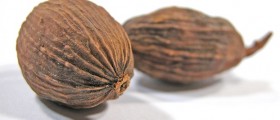
Dyspepsia
The term dyspepsia covers a whole range of stomachproblems including nausea, loss of appetite, gas, belching, bloating, anddiscomfort, and it is used in cases when it is hard to put a finger on one medicalcause of digestive distress. The first thing to do in relation to dyspepsia is to checkfor identifiable medical conditions like ulcers, gallstones or esophagealreflux, since, in the absence of these, medication might be prescribed to reducedigestive spasm and fight stomach acid. Stress is believed to be a trigger for dyspepsia asconfirmed by a study in which 80% of people with dyspepsia treated with placeboreported their condition had improved.
Numerous natural treatments are available for thosesuffering from dyspepsia. Artichoke leaf extract and the spice turmeric have beenexamined and proved effective in relieving the symptoms associated withdyspepsia by stimulating the gallbladder function. Combination of herbal treatments have been the subject of manystudies, and herbal remedies containing bitter candy tuft, or acombination of artichoke leaf, celandine and boldo, as well as the treatmentcontaining turmeric and celandine have all been found to significantly reducethe symptoms of dyspepsia. It should also be noted that there have been some warnings againstcelandine as it can cause liver damage, and similarly, boldo is not recommended topregnant women and people with liver and kidney conditions. Chamomile, fennel, peppermint, spearmint, dill, andturmeric are known as carminative herbs as they help in passing of gas, while theiressential oils can be used in the treatment of functional dyspepsia. The 4 week treatment with the combination of peppermint andcaraway oils which should be taken 3 times a day, helps in reducing the discomfort accompanying dyspepsia.
Alternative treatment
A mixture of peppermint, fennel, caraway andwormwood oils was found to have the same effect as the drug metoclopramide, used to promote stomach emptying. Essential oils should be taken with caution, especiallywormwood which is dangerous if taken for a long time, so people opting for thiskind of treatment are advised to apply it under the supervision of a doctor. Although it might come as a surprise, hot peppers areanother natural remedy for dyspepsia, because they contain a substance called capsaicinwhich gets rid of the discomfort in the stomach. Recommended daily doses are 2.5 g of red pepper powder divided and taken before meals. Other herbs that are also recommended for dyspepsia include bananapowder, chamomile, valeria, lemon balm, ginger, coriander, cinnamon, dandelion root, blessed thistle, centaury, chicory, rosemary, St. John’s wort, yarrow, linden, devils’ claw, barberry, horehound, cloves, radish and bitter orangepeel. Infusion made from parsley seeds or fruits treats indigestion,colic and gas. The substance betaine hydrochloride is a source of stomachacid, but there is no scientific support that says indigestion may be caused bypoor acidity of the stomach.

















Your thoughts on this
Loading...